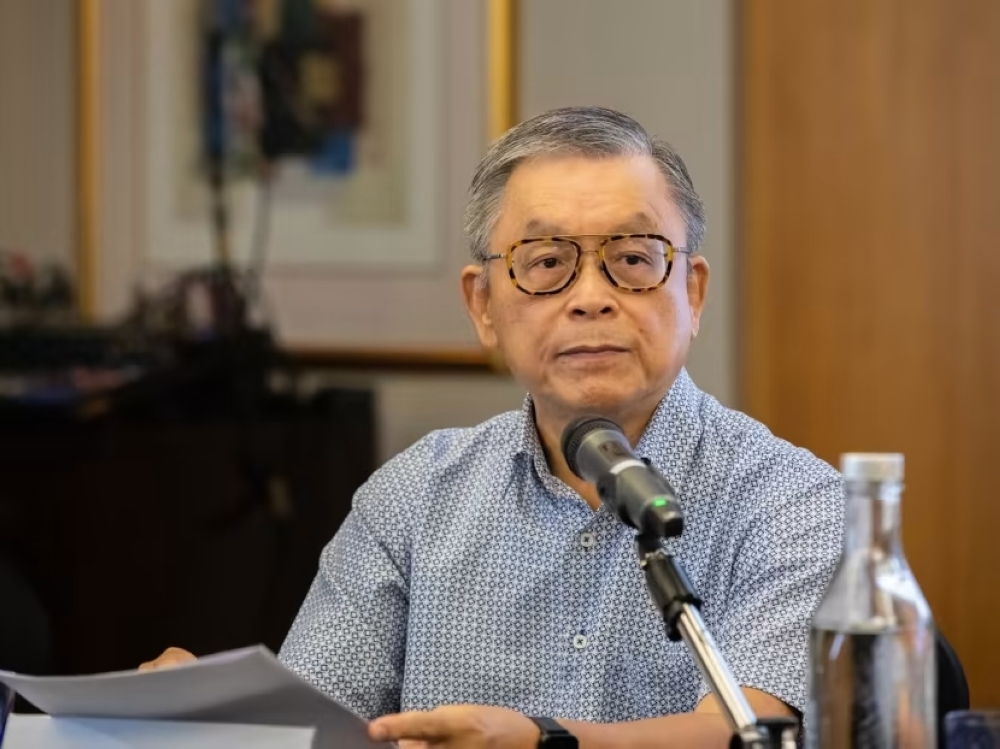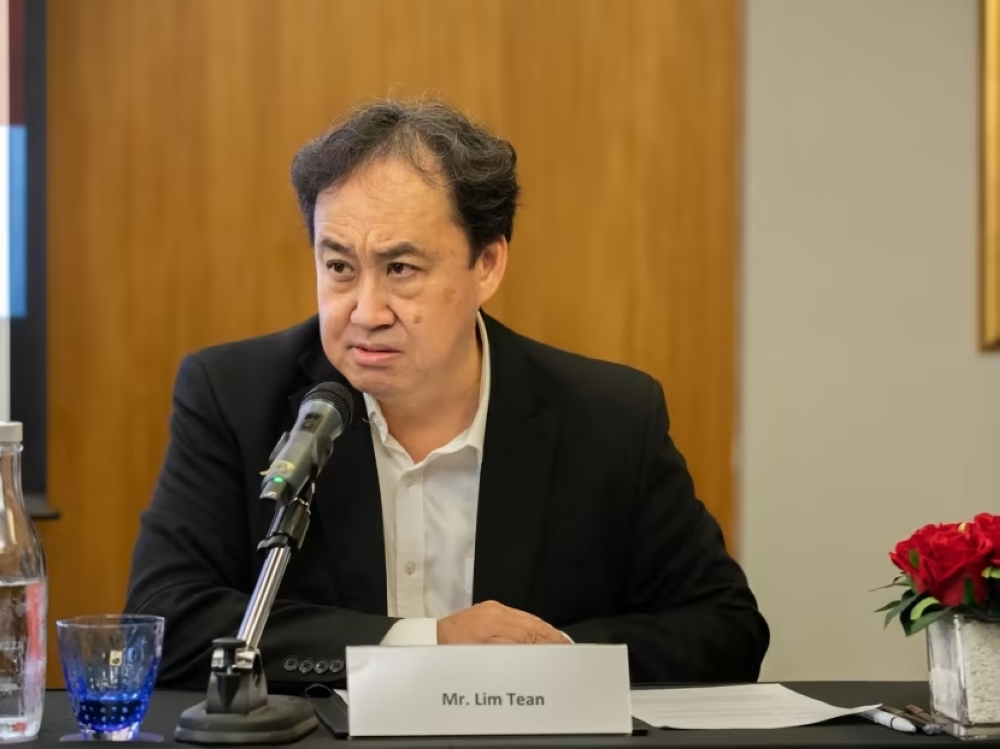SINGAPORE, Aug 12 — Tan Kin Lian is throwing his hat into the ring again for the upcoming presidential election, because he believes that another potential candidate, George Goh, may not qualify.
Tan, 75, said yesterday he wants to ensure that there is a “non-establishment” candidate, and in the event that they both meet the cut, he might step aside.
The former chief of insurance cooperative NTUC Income was speaking to the media at a press conference launching his election campaign.
He introduced his proposer, backer and one of his assenters. The team spent around half an hour delivering speeches, before fielding questions from the media.
On Goh, founder of furniture retailer Harvey Norman Ossia, Tan said that he had “high respect” for him and that he was “quite prepared to stand aside” when Goh announced his intention to stand in this year’s election, because he believed that Goh would be “independent”.
He later changed his mind when Ng Kok Song came forward and there were “comments that (Goh) doesn’t qualify”, suggesting that the contest would only be between former Cabinet minister Tharman Shanmugaratnam and Ng, who used to be the investment head at sovereign wealth fund GIC.
In the event that Goh does qualify, or if the four potential candidates now are joined by a new non-establishment candidate who qualifies, he may then re-consider his decision to run.
“I will certainly want to make sure that there is only one non-establishment candidate, (so) that we will not split the votes,” Tan said.
On his bid for presidency
Yesterday's press conference was Tan’s first public appearance since submitting his application for a certificate of eligibility on July 11.
Should he qualify and proceed with his bid for the presidency, this would not be his first rodeo. He last stood as a candidate in the 2011 election, where he came in last of four candidates, getting 4.91 per cent of the 2,274,773 votes.
Yesterday, Tan also introduced his proposer, seconder, principal election agent and one of his assenters. They are:
- Tan Jee Say, his proposer
- Lim Tean, his seconder
- Prabu Ramachandran, his principal election agent
- Allan Yeo Gim Beng, one of his assenters
Tan Jee Say was a fellow contestant in the 2011 presidential election, where he came in third of four candidates after getting 25.04 per cent of the votes.
Each potential presidential candidate is expected to have a team of a proposer, seconder and between four and eight assenters.

On how confident he was of garnering more votes this year than in 2011, Tan said that he was “very confident because Tan Jee Say’s supporters will be behind me, and he has a big following”.
On what he had learned from 2011’s election, he said: “The first lesson was that 2011 was not my time. I hope 2023 will be my time.”
On plans to ‘influence policies’
In his opening speech yesterday, Tan repeated a point about his “vision to use the President’s office to influence policies”.
He added that he did not intend to “be an adversary to the elected Government”, but instead, to “work in collaboration with the Government” to achieve these goals.
Previously, in a blog post on August 3, Tan said that, if elected, he planned to “influence” policymaking by engaging with elected officials, exercising veto powers, and encouraging public debate to “ensure that government policies align with (his) vision and goals”.
Yesterday, he stressed that he would “influence” these policies mainly through dialogue.
“I must emphasise that I will be constructive, and I believe the President should work with the Prime Minister and the ministers in a constructive way. There should be consultation, both ways.”
He also said that “there is a great deal that can be done through talking, through dialogue, through consultation and this is where I say it is the influence of the President’s office”.
Commenting on Tan’s “vision”, law lecturer and political observer Eugene Tan from the Singapore Management University said: “Tan continues to be vague about what he means by the President influencing the Government.
“It is also not at all clear how collaboration and consultation can influence the elected Government of the day.
“While a President may have ‘soft influence’, how he uses the influence matters. If he seeks to exert influence on matters in which the President has no constitutional oversight, he would be interfering in the workings of the elected Government.”

Tan’s seconder Lim Tean, who is leader of opposition party Peoples Voice, acknowledged the comments made by Tan’s critics that he did not understand the limited powers of the presidency or that the President has no executive powers.
“But these critics fail to recognise the broader constitutional duty that the President has, which is to look after the welfare of Singaporeans.
“The President may not have executive powers, but he is able to leverage the mandate he has received from the people and the prestige of his office to advise the Government of his views on government policies and how they are affecting the people.”
On this point, Assistant Professor Elvin Ong from the National University of Singapore’s department of political science, said: “In private, the elected President can say what he or she wants with regard to specific government policies.
“But the elected Government of the day is under no obligation to listen to what is said for those specific things at all.”
Dr Gillian Koh, senior research fellow at the Institute of Policy Studies, said: “From what Tan is saying, his utterances suggest that he will have much he would like to say about certain areas of public policy.
“He will have to be careful about campaigning on the basis of being confrontational or adversarial in his approach to the duly-elected Government. It will be a fine balance to tread.” — TODAY






















